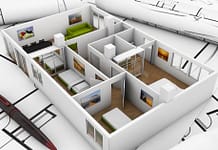Home renovations are an exciting opportunity to revitalize your living space, enhance functionality, and add value to your property. Whether you’re planning a small-scale makeover or a full-scale transformation, the key to a successful renovation lies in careful planning and execution. In this article, we’ll explore essential strategies and tips from www.cppkitchenbath.com experts to ensure your home renovation project achieves the results you desire.
Fun Fact: The concept of home renovation dates back thousands of years. Archaeologists have discovered evidence of ancient Egyptians and Romans remodeling their homes to improve comfort and aesthetics.
Define Your Renovation Goals
Before diving into a renovation project, it’s crucial to define your goals and priorities. Consider the following aspects:
Functionality: Determine how you want your space to function. Do you need more storage, improved flow, or additional living areas?
Aesthetics: What is your desired style and overall look? Gather inspiration from magazines, websites, and social media platforms to pinpoint your design preferences.
Budget: Establish a realistic budget that encompasses all project costs, including materials, labor, permits, and contingencies. It’s essential to have a clear financial plan from the outset.
Timeline: Set a reasonable timeline for your renovation, taking into account factors like permitting, weather, and any temporary living arrangements if necessary.
By clarifying your renovation goals, you’ll have a solid foundation for decision-making throughout the project.
Create a Detailed Renovation Plan
A well-thought-out renovation plan is the cornerstone of a successful project. Here’s how to create one:
Design and Layout: Collaborate with a professional designer or architect to create detailed plans that include floor layouts, elevations, and 3D renderings. This step ensures that your vision is accurately translated into actionable plans.
Material Selection: Choose high-quality materials that align with your design and budget. Research different options and consider factors like durability, maintenance, and sustainability.
Permits and Regulations: Check local building codes and regulations to determine which permits and approvals are required for your renovation. Failing to comply with these regulations can result in costly delays.
Contractor Selection: Carefully vet potential contractors, checking references and reviewing their past work. A skilled and reputable contractor is crucial to the success of your project.
Project Schedule: Develop a detailed project schedule that outlines every step of the renovation process, from demolition to final inspections. A well-structured timeline keeps the project on track.
Budget Wisely and Plan for Contingencies
Budgeting is a critical aspect of any renovation project. To ensure financial success:
Establish a Contingency Fund: Set aside a contingency fund of at least 10% of your total budget to cover unexpected expenses or changes in the project.
Prioritize Spending: Allocate your budget to areas that provide the most value and impact. Consider allocating a larger portion to key focal points like the kitchen or master bathroom.
Get Multiple Quotes: Seek quotes from different contractors and suppliers to compare prices and negotiate for the best deals.
Track Expenses: Keep meticulous records of all project expenses to stay within budget. Using budgeting software or apps can help you monitor spending in real-time.
Prepare for the Unforeseen
Despite careful planning, unforeseen challenges can arise during a renovation. Here’s how to prepare:
Building Inspections: Hire leading home inspection specialists in san diego and schedule regular building inspections to catch any issues early and ensure compliance with building codes.
Asbestos and Lead Testing: If your home was built before the 1980s, consider testing for asbestos and lead paint, which can pose health risks during demolition and renovation.
Hidden Costs: Be prepared for hidden costs that may surface during the project, such as structural issues, plumbing or electrical upgrades, or mold remediation.
Temporary Living Arrangements: If your renovation significantly disrupts your daily life, consider making temporary living arrangements to minimize inconvenience.
Maintain Clear Communication
Effective communication is vital throughout the renovation process:
Regular Updates: Stay in close contact with your contractor to receive regular updates on the project’s progress and address any concerns promptly.
Change Orders: Clearly define the process for change orders and document any modifications to the original plan. Changes can impact the timeline and budget.
Daily Logs: Keep a daily log of activities and observations during the renovation. This can help you track progress and identify any issues that need attention.
Problem Resolution: Address issues or disagreements with your contractor in a constructive and solution-oriented manner. Effective communication is key to resolving conflicts.
Think Green and Sustainable
Consider incorporating eco-friendly and sustainable practices into your renovation:
Energy Efficiency: Opt for energy-efficient appliances, lighting, and insulation to reduce your carbon footprint and lower utility bills.
Salvaged Materials: Use salvaged or reclaimed materials when possible. These materials not only reduce waste but also add character to your home.
Water Conservation: Install water-saving fixtures and appliances to conserve water resources.
Solar Panels: Explore the feasibility of installing solar panels to generate renewable energy and reduce electricity costs over time.
Embrace Technology and Smart Features
Modern technology can enhance the functionality and convenience of your renovated space:
Smart Home Integration: Consider incorporating smart home features such as automated lighting, thermostat control, and security systems.
Energy Monitoring: Install energy monitoring systems to track and optimize your home’s energy consumption.
Home Theater: Create a dedicated home theater or media room with state-of-the-art audio and video equipment for entertainment.
Home Office: In response to the rise of remote work, consider adding a home office or workspace with ergonomic furniture and connectivity solutions.
A successful home renovation requires careful planning, clear communication, and adaptability to unforeseen challenges. By defining your goals, creating a detailed plan, budgeting wisely, and preparing for unexpected situations, you can navigate the renovation process with confidence. Embrace sustainable practices, integrate modern technology, and maintain a strong partnership with your contractor to bring your vision to life. Ultimately, a well-executed renovation will not only enhance your living space but also increase the value and comfort of your home.








